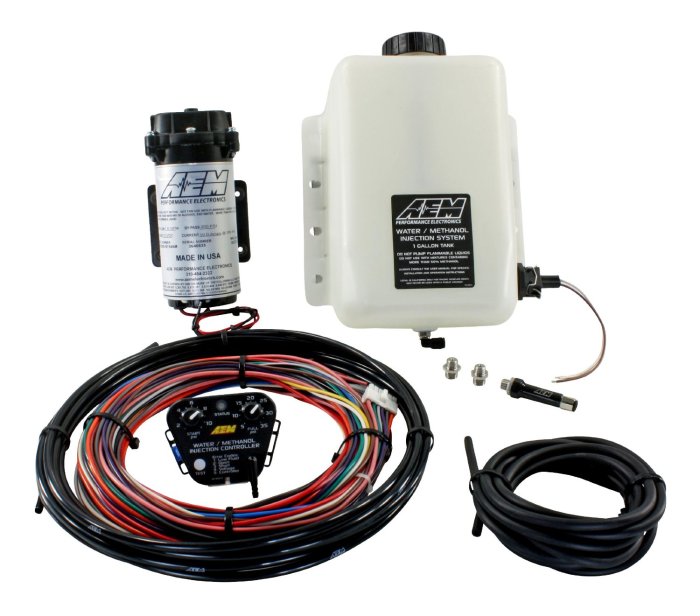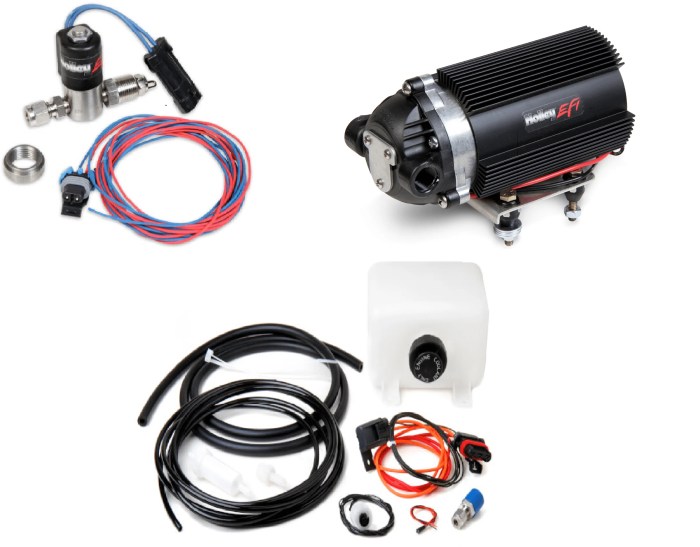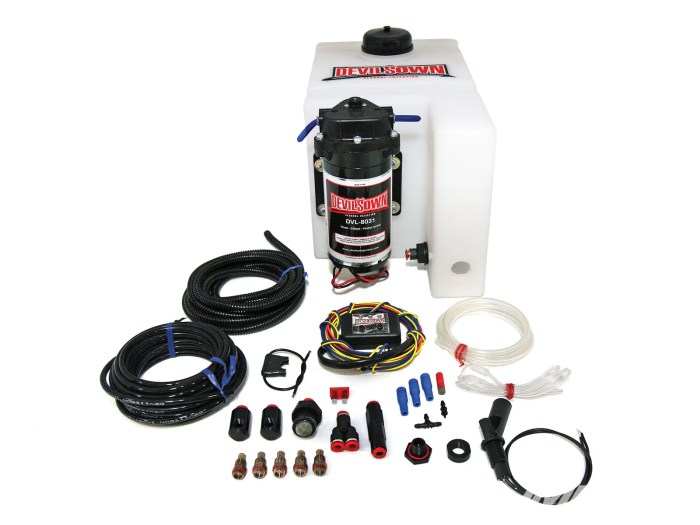Disadvantages of water methanol injection – Water methanol injection, a topic that has stirred both curiosity and debate, demands our attention as we delve into its potential drawbacks. This comprehensive analysis unravels the disadvantages associated with this technology, providing a nuanced understanding of its impact on engine components, performance, emissions, and more.
Our exploration begins by examining the potential damage to engine parts, including pistons, rings, and valves. We uncover the underlying mechanisms that contribute to these issues, shedding light on the reasons why water-methanol injection can lead to reduced engine longevity.
Furthermore, we assess the performance trade-offs, discussing the potential drawbacks in terms of engine performance, such as reduced power output or torque.
Disadvantages of Water-Methanol Injection: Disadvantages Of Water Methanol Injection

Water-methanol injection (WMI) is a performance-enhancing technology used in internal combustion engines. While it offers potential benefits such as increased power and efficiency, it also comes with several disadvantages that should be carefully considered before implementation.
Negative Impacts on Engine Components
WMI can potentially damage engine components such as pistons, rings, and valves. The injection of water and methanol into the combustion chamber can lead to:
- Increased cylinder pressure, which can stress engine components
- Erosion of piston rings and cylinder walls due to the corrosive nature of methanol
- Valve damage from excessive heat and detonation
Reduced Engine Longevity
Studies have shown that WMI can reduce engine lifespan. The reasons for this include:
- Increased wear and tear on engine components due to higher cylinder pressures
- Corrosion and erosion of internal engine parts
- Increased thermal stress on engine components
Performance Trade-Offs
While WMI can provide performance gains in certain operating conditions, it may also come with trade-offs. These include:
- Reduced power output or torque at low engine speeds
- Increased fuel consumption due to the additional fluid being injected
- Potential for engine knocking or detonation under certain conditions
Fuel System Issues
WMI can cause problems within the fuel system, such as:
- Corrosion of fuel lines and components due to the corrosive nature of methanol
- Clogging of fuel injectors due to the presence of water and methanol
- Damage to fuel pumps and other fuel system components
Emissions Concerns, Disadvantages of water methanol injection
WMI can impact vehicle emissions, leading to:
- Increased emissions of unburned hydrocarbons (HC)
- Increased emissions of nitrogen oxides (NOx)
- Potential for increased carbon monoxide (CO) emissions
Cost and Maintenance Considerations
Installing and maintaining a WMI system involves significant costs, including:
- Purchase and installation of the injection system
- Regular replenishment of water and methanol fluids
- Maintenance and servicing of the system
Warranty Implications
Using WMI may affect vehicle warranties. Many manufacturers do not cover damage caused by aftermarket modifications, including WMI systems. This means that any issues or failures related to WMI may not be covered under the vehicle’s warranty.
Safety Considerations
WMI systems can pose potential safety hazards, including:
- Leaks or spills of water and methanol, which can be flammable
- Increased underhood temperatures due to the additional heat generated by WMI
- Potential for system failure, which could lead to engine damage
Question & Answer Hub
Does water methanol injection void vehicle warranties?
The impact of water methanol injection on vehicle warranties varies depending on the manufacturer and the specific terms of the warranty. Some manufacturers may void warranties if the injection system is installed without their approval, while others may offer limited coverage.
It is advisable to consult the vehicle manufacturer before installing a water methanol injection system.
Is water methanol injection safe?
Water methanol injection can pose safety hazards if not handled properly. Leaks or improper storage of the methanol can lead to fire or explosion. It is crucial to follow manufacturer guidelines and take necessary precautions, such as wearing appropriate safety gear and storing methanol in a secure location.

